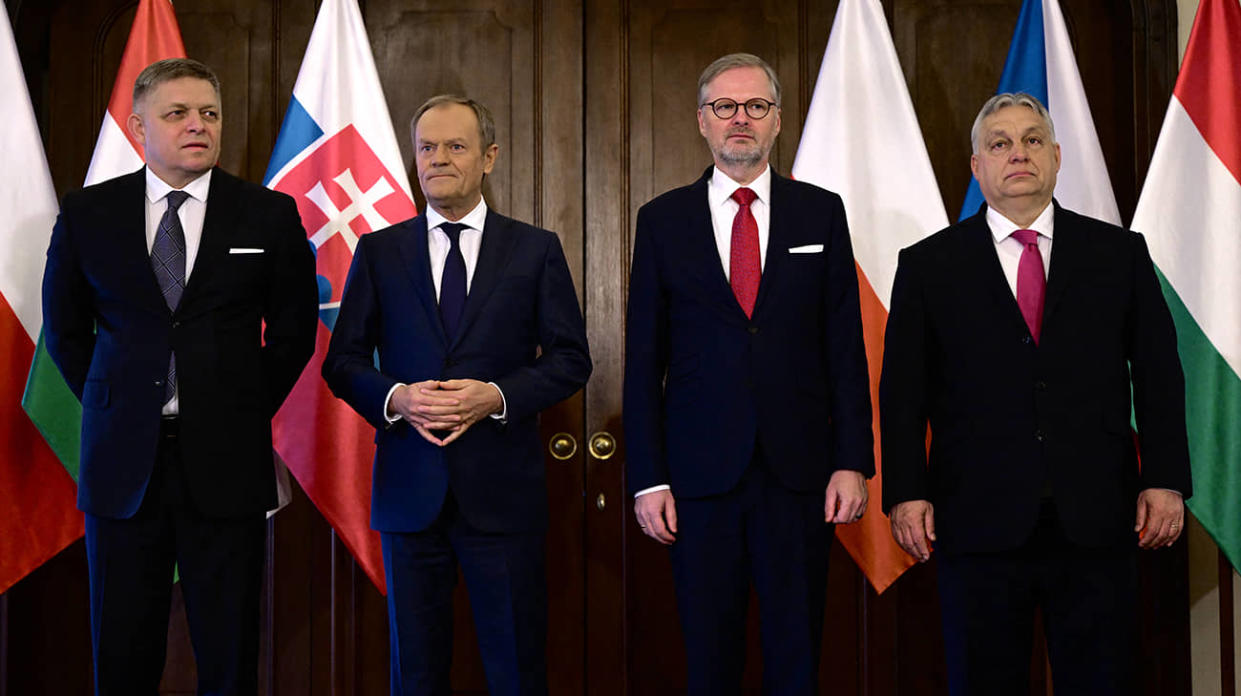Visegrád Group leaders publicly clash over war in Ukraine

- Oops!Something went wrong.Please try again later.
- Oops!Something went wrong.Please try again later.
- Oops!Something went wrong.Please try again later.
- Oops!Something went wrong.Please try again later.
The prime ministers of the four Visegrád Group countries – Czechia, Slovakia, Poland and Hungary – publicly voiced their disagreement over Russia’s full-scale invasion of Ukraine following a summit in Prague on 27 February.
Source: European Pravda, with reference to Czech national press agency ČTK
Details: During a press conference following the Visegrád Group summit in Prague, Czech Prime Minister Petr Fiala admitted that the leaders of the four countries disagree over the cause of the Russian aggression against Ukraine and the types of aid they are prepared to give to Ukraine.
Fiala said that Czechia and Poland are sending military aid to Ukraine while Hungary and Slovakia are not, though they are prepared to supply financial and humanitarian aid.
Hungarian Prime Minister Viktor Orbán confirmed Fiala’s comments, saying that Russia’s aggression violated international law and that Ukraine needs assistance. However, he said that Hungary will not send weapons to Ukraine.
Orbán also called for urgent peace talks, "the sooner the better". Fiala publicly disagreed with him, stressing that he does not believe in pacifist solutions and that making concessions to an aggressor would not result in long-lasting peace.
Slovakian Prime Minister Robert Fico agreed with Orbán, saying that while he recognises and respects Ukraine’s independence, both Ukraine and the Russian Federation need security assurances.
Polish Prime Minister Donald Tusk said he hopes that the Visegrád Group countries will be able to at least partially cooperate on aid for Ukraine and that support for Kyiv "has to be more unambiguous".
Like Fiala, he rejected calls for "immediate" negotiations: "The moral, political and historical assessment of what is happening in Ukraine now has to be precise. There is no room for negotiations when it comes to determining who is a victim and who is an aggressor."
Background:
The prime ministers of Slovakia and Hungary were met in Prague with a protest criticising their position in Russia's war against Ukraine.
On 24 February, Slovakian Prime Minister Robert Fico said that Russia started its war against Ukraine in 2014 because "Ukrainian neo-Nazis" were "rampant". Fico convened a Slovakian Security Council meeting on 26 February, concerned about the Paris conference aimed at strengthening Western support for Ukraine.
Support UP or become our patron!

